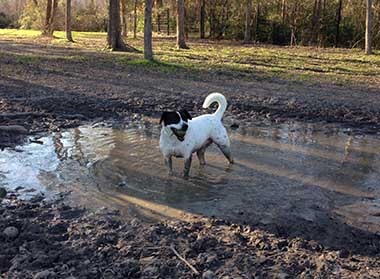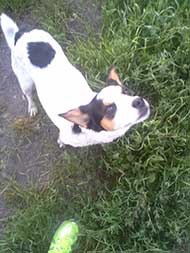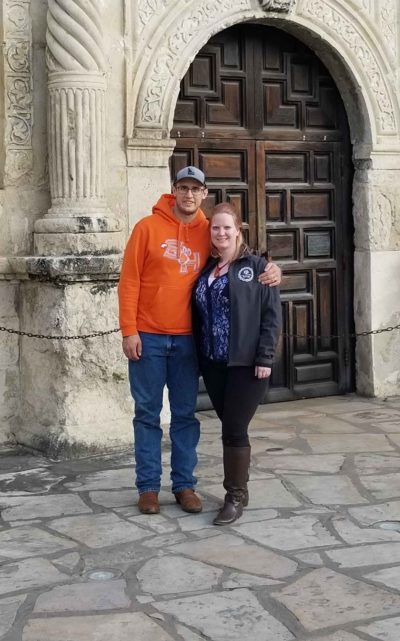This month’s Graduate Student Spotlight highlights Katrina Hofstetter. A Graduate Student in the Lockless lab, Katrina studies how bacterial ion channels affect cell physiology. Learn more about Katrina and her work in this month’s Spotlight below.
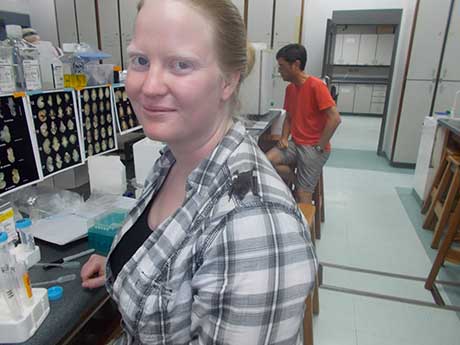 Katrina Hofstetter
Katrina Hofstetter
I’m a fifth year PhD candidate in the Lockless Lab, where I study E. coli pattern formation. I grew up in a tiny town in Idaho (my high school graduating class was 18 students). After graduating high school I attended Idaho State University, where I graduated with a B.S. in Biology in 2012 and a M.S. in Biology in 2014. During my Master’s degree I worked in the lab of Dr. Chris Cretekos, and helped characterize the expression of several fibroblast growth factors (FGFs) and their receptors in the developing short-tailed fruit bat (Carollia perspicillata) limb. I compared the expression between bat and mouse limb development and found a subset of genes and receptors that were expressed exclusively in each the bat and mouse limbs. After graduating, I worked for Dr. Sabine Fuhrmann as a lab technician at the University of Utah. During this time I worked on a project focusing on optic cup formation in the mouse eye. I joined Dr. Steve Lockless’s lab in May 2016, where we largely study how bacterial ion channels affect cell physiology.
When I’m not in lab my husband, Cody and I enjoy playing with our two dogs Penny and Flint. They are two Idaho transplants who are very glad that dog parks in Texas never have snow or ice. We are also training for the BCS Marathon in December, my second marathon and Cody’s first.
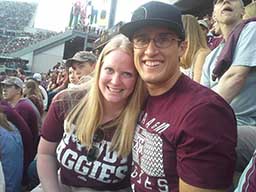 What is one thing people would be surprised to know about you?
What is one thing people would be surprised to know about you?
Going to college was not included in my original life plan. In high school I worked as an assistant horse trainer, and at the time being a trainer was my dream job. When the recession hit and trainers were forced to downsize, full-time assistant jobs became obsolete. Since I needed to find a new dream job, I went to college. For my first few years in college I worked occasional weekends and school breaks at my old horse training job. When I started working in a lab, however, it became clear that I enjoyed research more than training, which obviously has led me to graduate school.
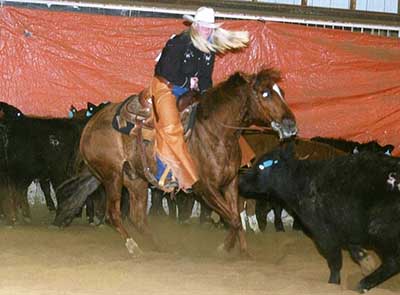 What projects are you currently working on?
What projects are you currently working on?
My dissertation is focused on understanding how a fraction of E. coli mutants grow with a repeating pattern of high and low cell density when on soft agar plates. This growth phenotype forms a pattern of bands that looks like a Bull’s eye. I have focused on identifying band forming mutant strains, and using whole genome sequencing to find genes that are important for this pattern formation. A challenge when sequencing circular bacterial genomes is that most software programs are designed for linear genomes, such as humans. While studying the biology of these mutant strains, I have been working with an undergraduate computer science major to create a software suite that will adapt the current programs to handle circular bacterial DNA. Additionally, I work on a modifier of the banding pattern that regulates a non-selective ion channel in E. coli, which we found to be involved in membrane potential modulation. However, alteration of the membrane potential is not what causes the modification of the banding pattern. I am currently designing experiments to find the unknown system that the regulator is interacting with to modulate band formation. After finding the genes involved in this pattern formation I will use that information to identify conditions that the band forming mutants have an advantage over wild type cells.
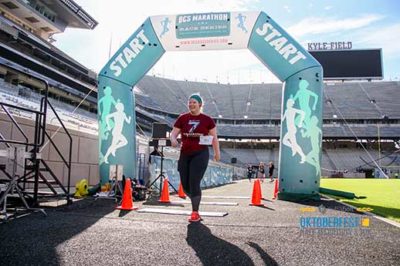 How did you select your major or concentration?
How did you select your major or concentration?
Honestly, dumb luck! I started college as an undecided major and started taking introductory science classes because I had done well in high school science and math classes. After my first year of introduction courses I took Developmental Biology, taught by my future advisor Dr. Cretekos, because of the rave reviews previous students had given the course. The popularity largely stemmed from how the lab was conducted. Each week Dr. Cretekos would help students design their own real experiments. For example, one experiment my group switched the early fore and hind limbs of chicken embryos to test if there was a stage where you could make the “fore” limb develop as a hind limb. Unfortunately, we didn’t have good enough hands to get that experiment to work on the first try. Some of our larger limb bud transfers did grow, but grew forelimbs where the hindlimbs were. I loved the course, and found that doing experiments was fun, exciting, and challenging. I started working in his research lab (after declaring my major) and worked for him as an undergraduate researcher, and stayed in his lab to complete my Master’s degree.
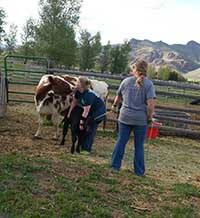 What is the best advice you’ve been given?
What is the best advice you’ve been given?
Don’t talk like a “chick.” – Sarah Bondos. In my first committee meeting it was pointed out that during presentations I tend to increase the inflection of my voice at the end of my sentences. I was candidly told by Dr. Bondos that this made me sound incompetent. It took me several lab meetings presentations to keep my vocal tone steady, but I have noticed it made a huge difference in how I feel I’m being perceived.
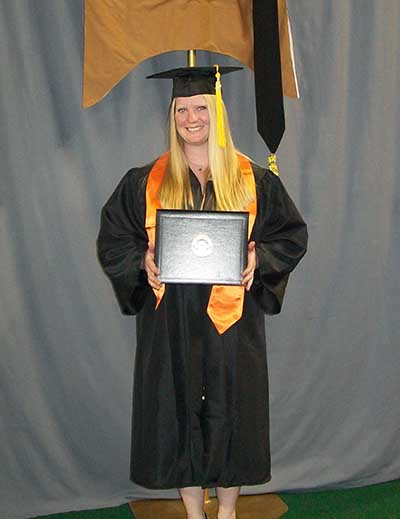 What advice would you give to a new graduate student?
What advice would you give to a new graduate student?
Imposter syndrome is real and more pervasive than you think, almost all of us struggle to believe that we are good enough. When/if you feel this way, remember you aren’t alone and talk to your cohort because in my experience they are feeling the same way.
Use your Twitter account to follow labs, graduate students, and journals in your field, this makes it easier to stay current with your field and network. Also, science humor accounts are great for a chuckle.
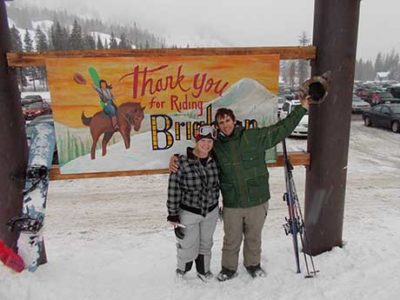 What is on your bookshelf?
What is on your bookshelf?
Like most of graduate students I have a large collection of textbooks. I couldn’t bear to part with the textbooks from my favorite undergrad courses, and still lug them around every move much to my husband’s frustration. I have always been a huge bookworm; I eventually needed special permission to use the high school library in elementary school because I exhausted the smaller library. Some of my all-time favorites are Catch-22, When the Legends Die, The Outsiders, Of Mice and Men, and the Harry Potter series.
